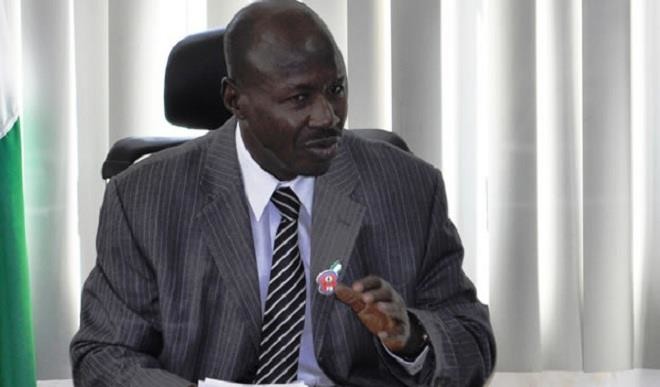The April 23rd, 2020 deadline issued by a prominent United States of America Senator, Charles Grassley, to the US Congress to determine what steps the US government must take before it helps to transfer $320 million Abacha loot has come and gone, yet the loot has not been returned to Nigeria.
In his April 1, 2020 letter to the U.S Department of Justice ( DoJ), the 86 year-old Senator Grassley, Chairman of the U.S Senate Committee on Finance, had called for delay of the repatriation of all the $320 Million recovered from bank accounts said to be connected to Nigeria’s late Military Head of State, General Sani Abacha.
Gen. Sani Abacha who ruled from 1993 until his death in 1998 was alleged to have stolen over $5 billion of public money.
Senator Charles Grassley alleged that the EFCC, its acting Chairman, Mr Ibrahim Magu, and Attorney General of the Federation (AGF), Mr Abubakar Malami (SAN) were biased against critics and political opponents of the incumbent administration of President Buhari in the fight against corruption, adding that they were “agents of oppression.”
In his swift reaction, the AGF dismissed the U.S. Senator’s assertions as baseless.
Lagos-based senior lawyer, Martin Okpaleke, in a chat with Daily Trust over the weekend contended that any fair-minded person will score the Commission’s performance under Magu creditably well based on publicly available information about the Commission’s work.
He expressed disappointment that EFCC’s work in combating crime appears to be suffering from what he described as “a mostly politically induced negative perception of the Commission’s efforts as being unfairly targeted at critics and political opponents of the incumbent administration of President Muhammadu Buhari.”
He contended that such perception is not borne out by the facts when one considers that politicians of the current ruling party as well as its supporters have been investigated and are still being investigated by the Commission over various alleged offences, with some already prosecuted and convictions obtained by the Commission from the courts while several others are currently being prosecuted.
While commending the U.S Senator and the U.S government for their consistent interest in the work of Nigeria’s law enforcement agencies, particularly the EFCC, Okpaleke said the concerns raised in the U.S. Senator’s letter and the accusations contained in it are not sufficient grounds for the Senator or anybody to call for the money not to be returned to Nigeria.
According to him, there is no dispute that the monies are Nigeria’s public funds that were unlawfully taken out of Nigeria and unlawfully domiciled in bank accounts within U.S. jurisdiction.
He added that it was important that attention should be on the totality of EFCC’s work in combating economic and specialised and sophisticated crimes and not be focused on corruption cases involving politically exposed persons.
Okpaleke however pointed out that EFCC does not deliver justice alone but works through and with the courts and cannot usurp the role of the courts in the criminal justice system and processes, thus making it imperative that those criticising the Commission ought to be circumspect and mindful of the limits of the Commission’s powers and responsibilities in the wider scheme of criminal justice delivery.
He also emphasised that the National Assembly has a role to play in bolstering the efforts of EFCC, and called for Magu’s name to be represented to the current Senate for confirmation, urging the Senate to confirm his appointment as soon as this is done.
According to Okpaleke, the creditable performance of Magu in acting capacity in the last couple of years could be considered at the very least that refusal by the last Senate to confirm his appointment is a very serious error on the part of that Senate. However, he called on the EFCC which he felt had an excellent public relations unit to do more “to change some of these negative perceptions of the Commission’s work and performance”.
On the issue raised by Senator Grassley that the Commission and its Acting Chairman are “agents of oppression”, Okpaleke condemned such characterisation, contending that it is wrong personalising such matters to the extent of defining and reducing the actions of a corporate law enforcement entity to the person of the leading member of its management no matter how tempting that might be.
But he called on the EFCC to be more open to plea bargains by suspects or defendants, and to work more closely with the courts in appropriate cases, utilising the plea bargain innovation in the Administration of Criminal Justice Act, as amended.
Another lawyer who does not want his name in print suggested that attention should be refocused by the public, including the U.S. Senator and the U.S. and other governments such as the British government, and the European Union (EU) on other areas of EFCC’s work of combating crimes such as money laundering, sophisticated frauds and financial crimes and cyber-crimes. These are areas in which he said the Commission has excelled and attained the highest global standards under Magu and is currently cooperating with the U.S. Federal Bureau of Investigation (FBI).
He said he felt that such model of cooperation between EFCC and the FBI should have been one of the areas of focus by the U.S Senator and in respect of which he ought to encourage greater cooperation between the U.S. government and its agencies and the Nigerian government and its agencies.
He said that handling of corruption cases involving politicians by law enforcement agencies world-wide in partisan democratic environments tends to be inherently controversial, emotive and sensational and that it was never easy for law enforcement agencies to navigate such politically charged terrains without facing accusations of bias and partisanship from one or more sides.
Daily Trust gathered that Courts, particularly the Federal High Court, appear to have generally tended to approve most plea bargain agreements entered into by the EFCC and defendants being prosecuted by it, with such defendants being convicted but sentenced to less punishment, suggesting that the “oppressive” tag foisted on the EFCC and its acting chairman by Senator Grassley may after all be ill-informed.
Some other courts have even recommended plea bargaining to both the Commission and defendants facing trial.
EFCC acting spokesman, Mr Tony Orilade, has insisted that there was no iota of bias in the Commission’s handling of criminal cases under Magu, particularly corruption cases, and that the anti-corruption battle being fought by the Commission has been “impartial, objective and non-discriminatory.”
Orilade said that the U.S. Senator’s accusations failed to address the painstaking efforts of the acting Chairman, Magu, in tackling corruption without fear or favour, cooperating with the U.S. in fighting cybercrimes, and in the transparent and accountable handling of recovered funds.

 Join Daily Trust WhatsApp Community For Quick Access To News and Happenings Around You.
Join Daily Trust WhatsApp Community For Quick Access To News and Happenings Around You.


